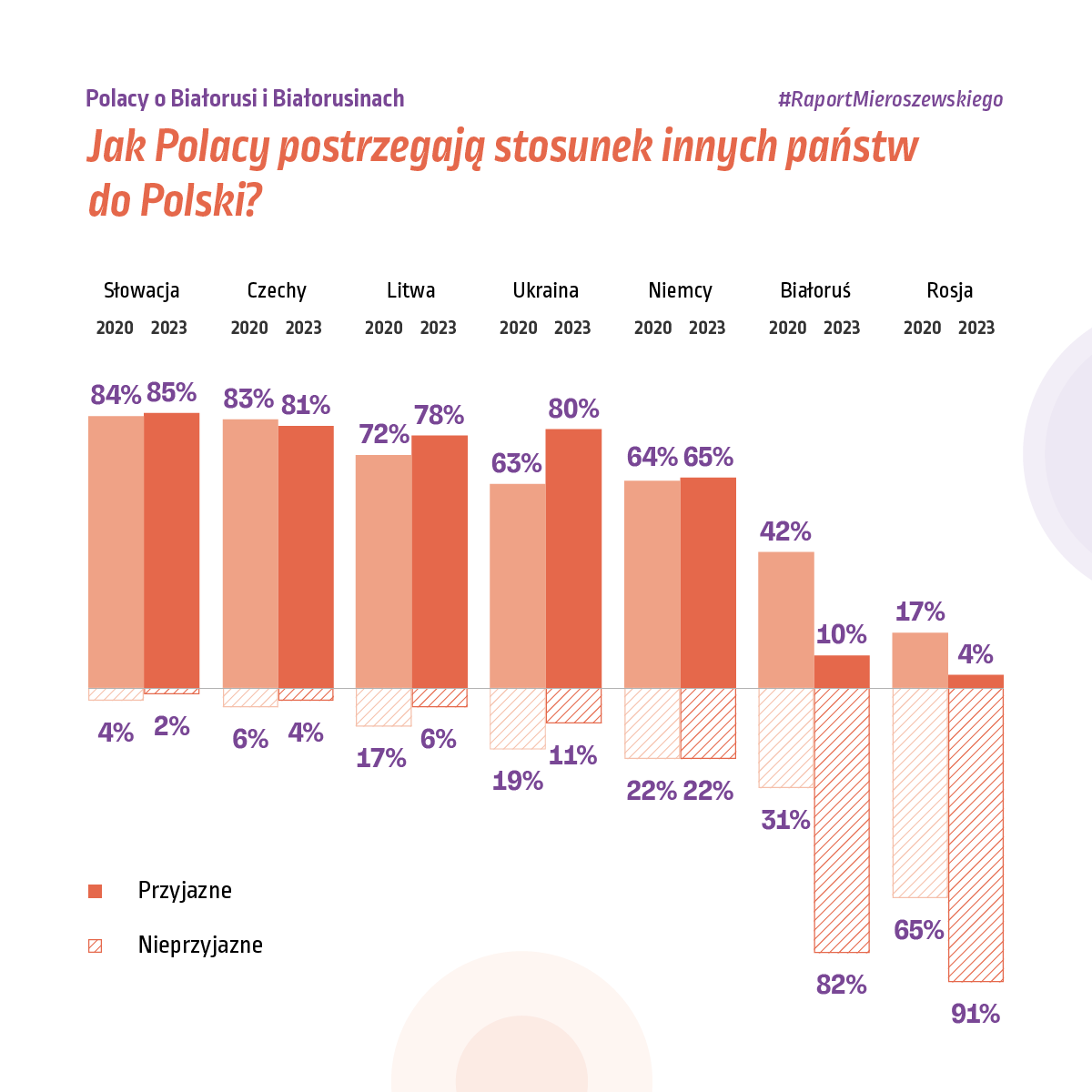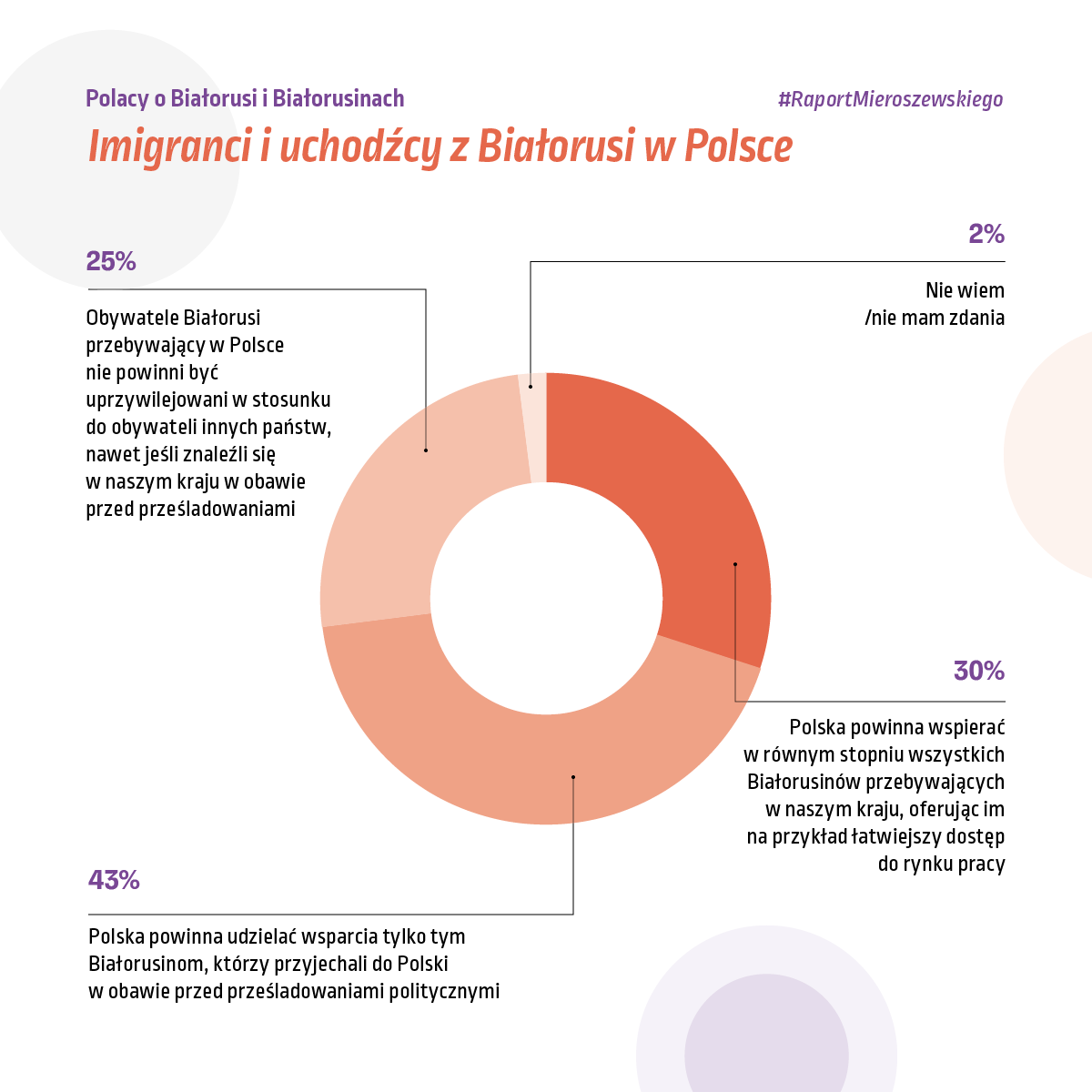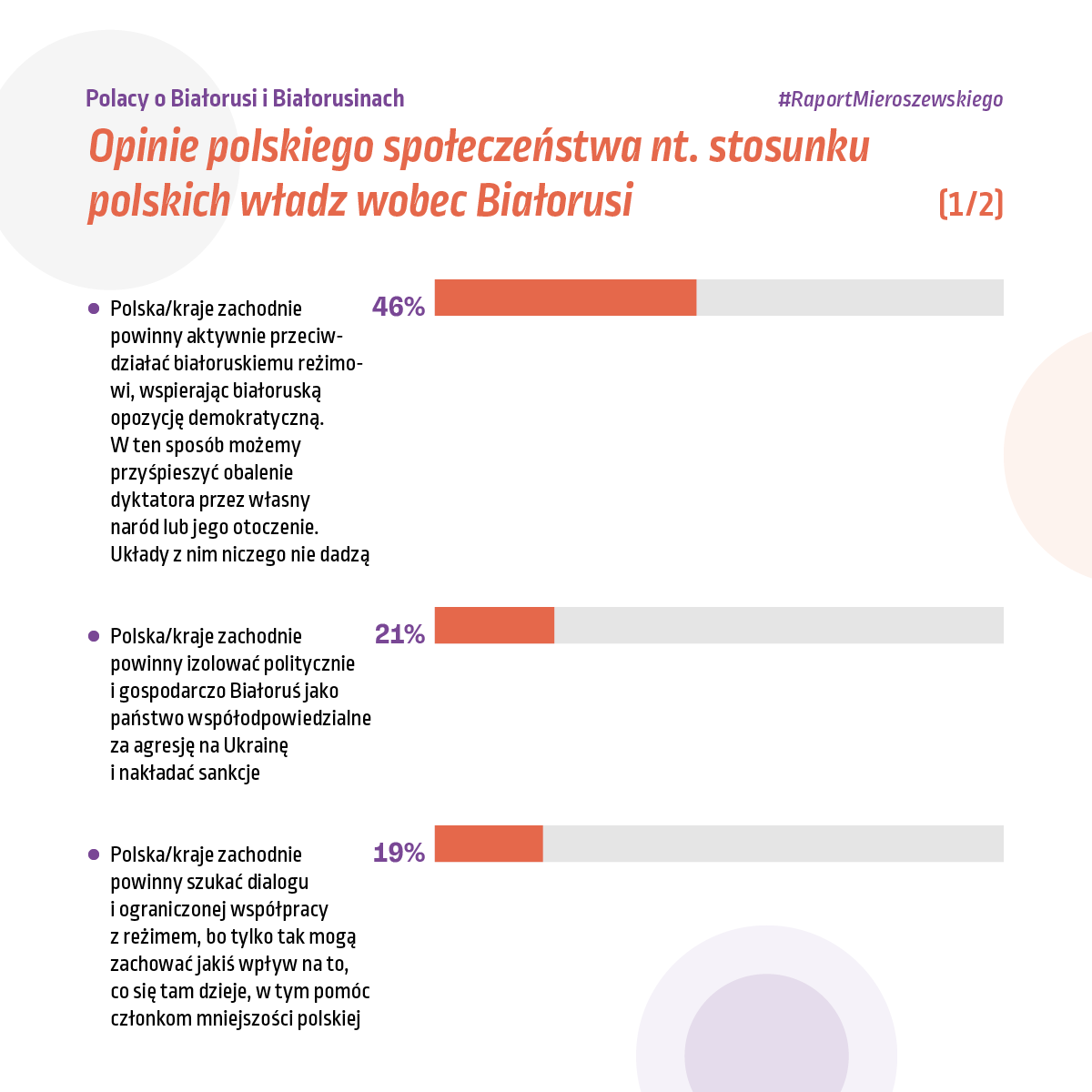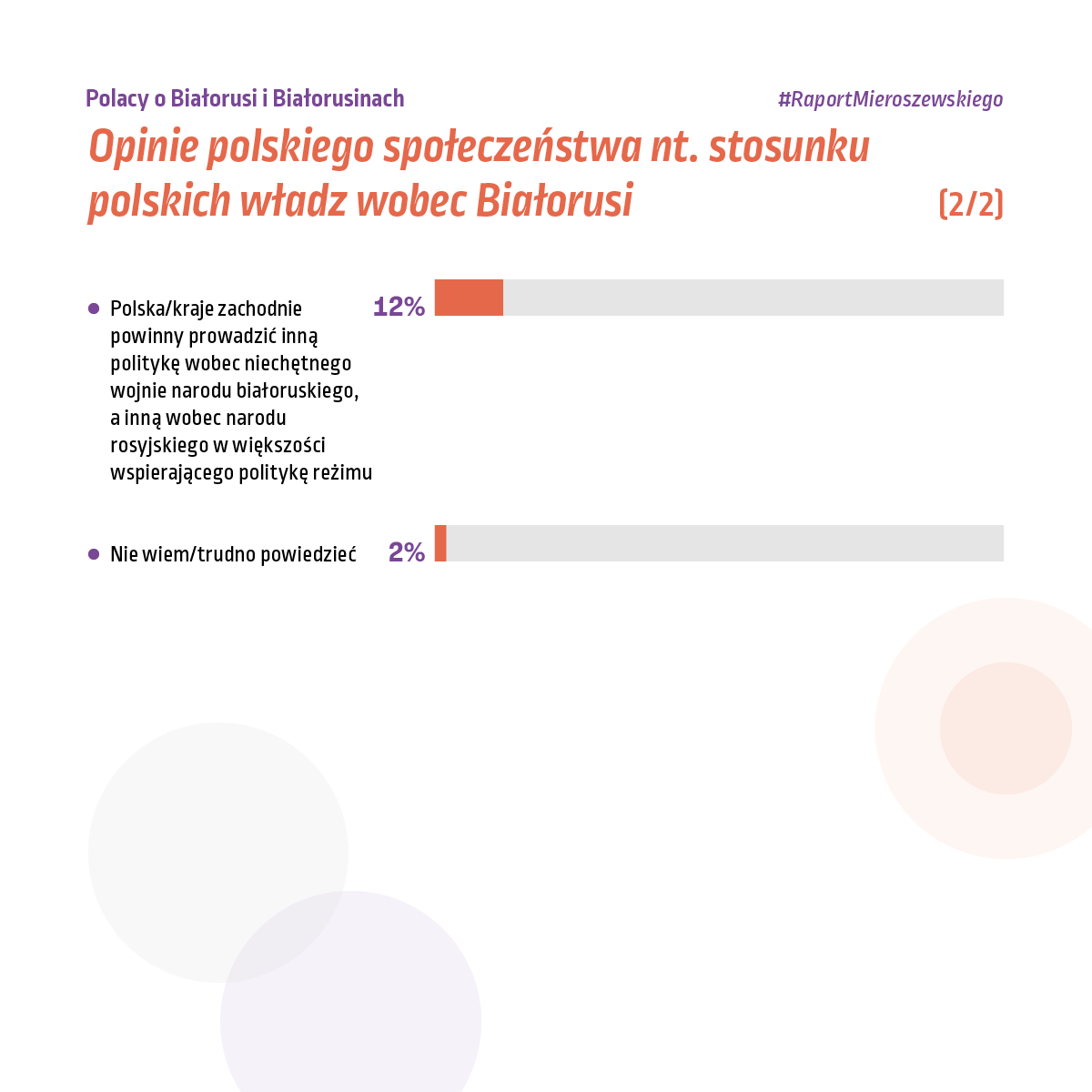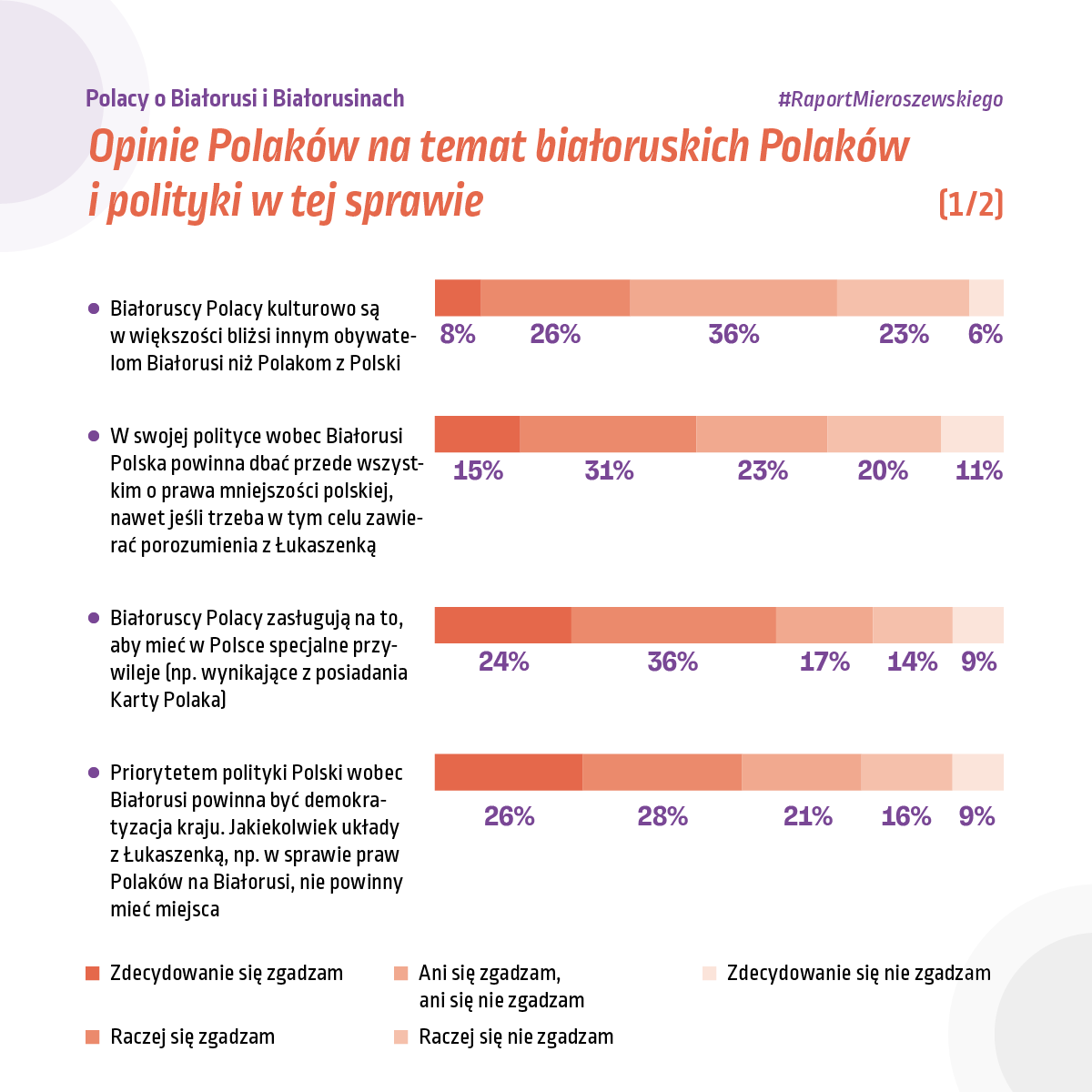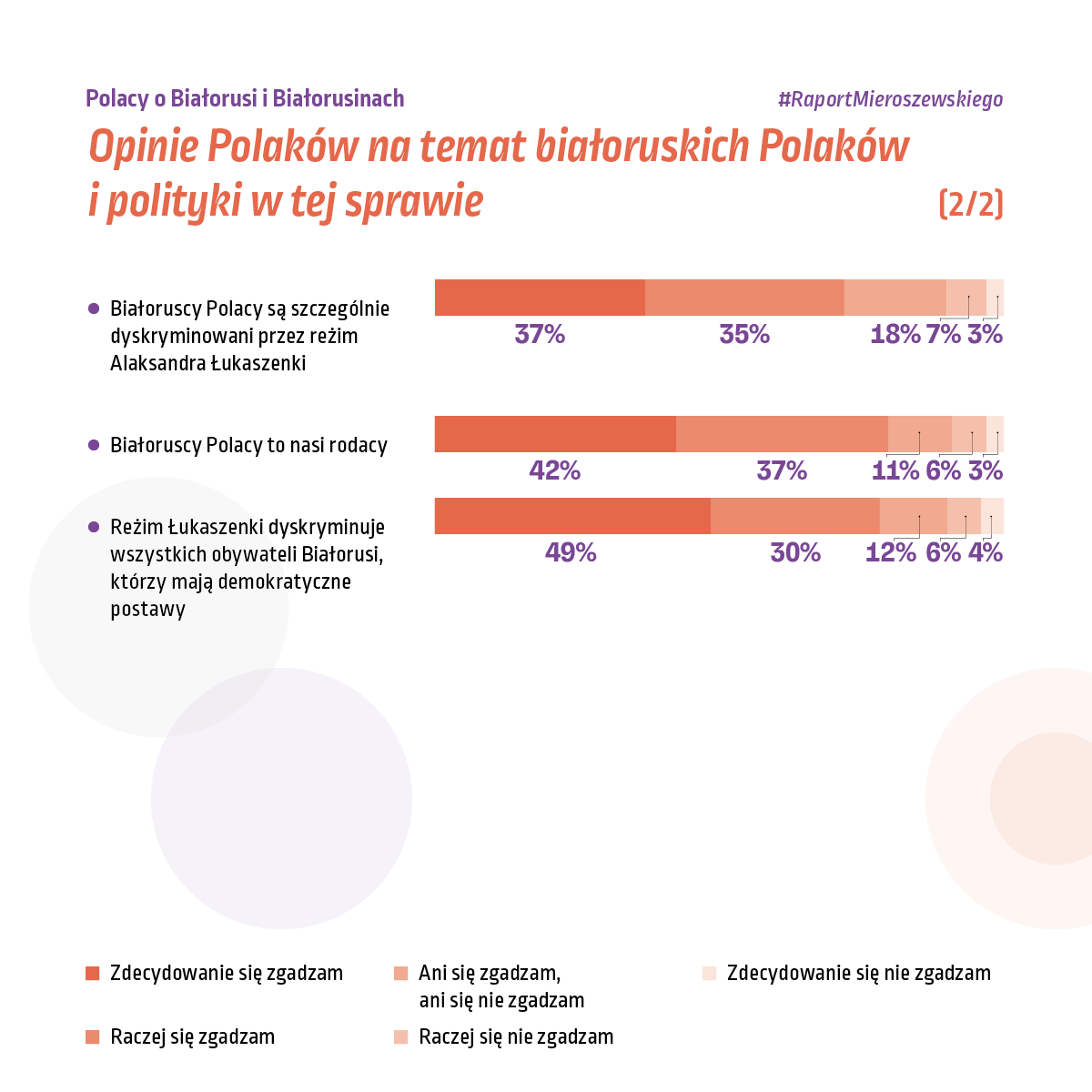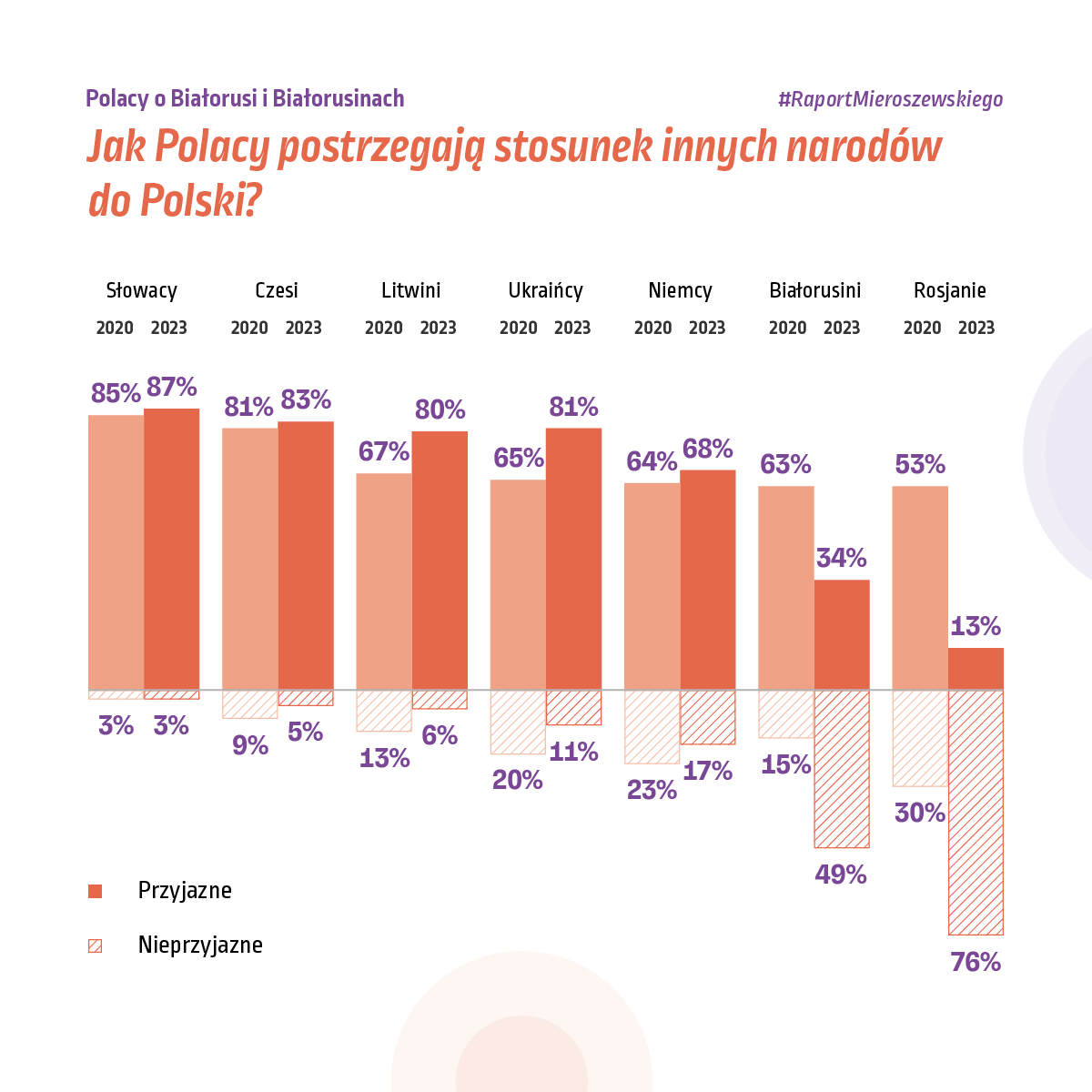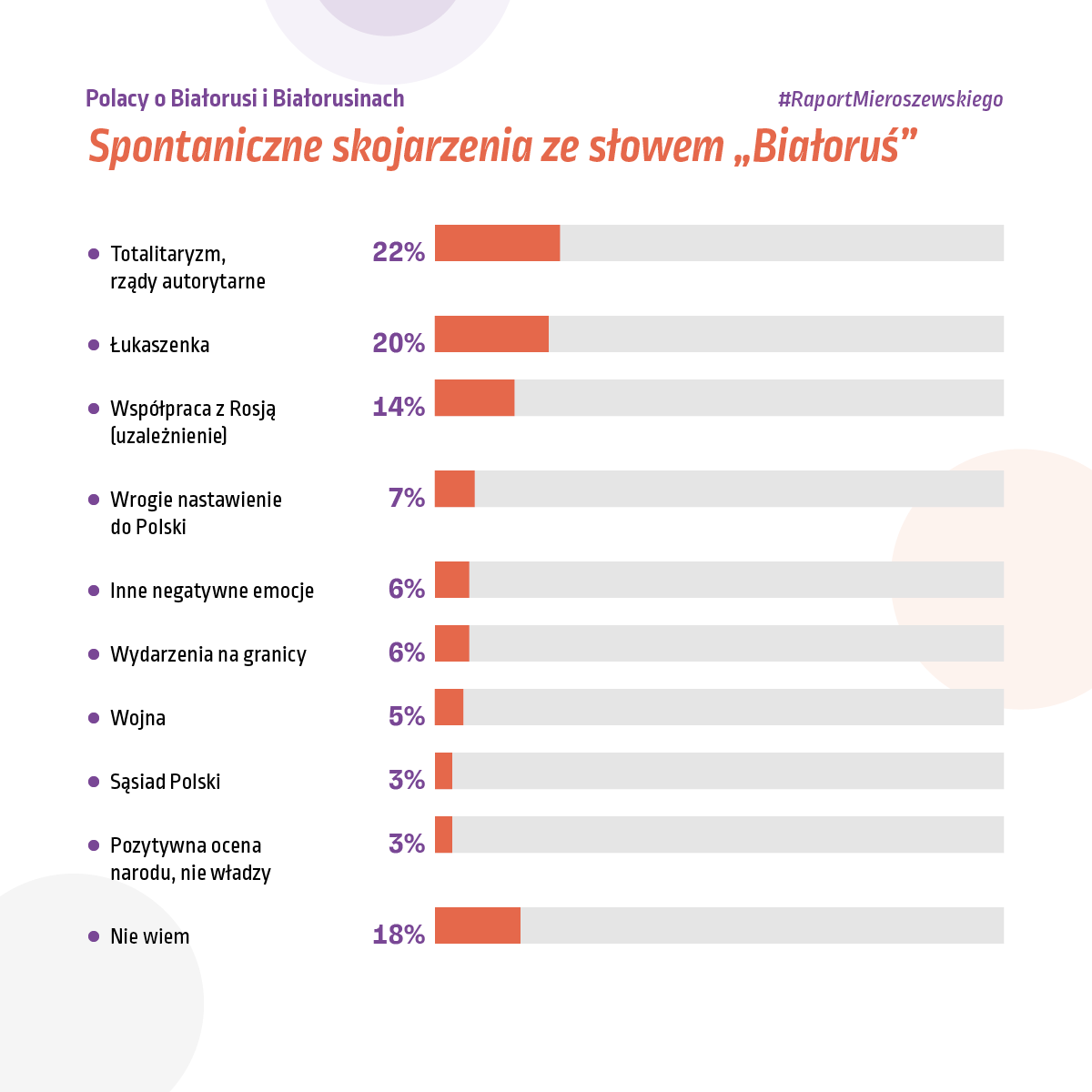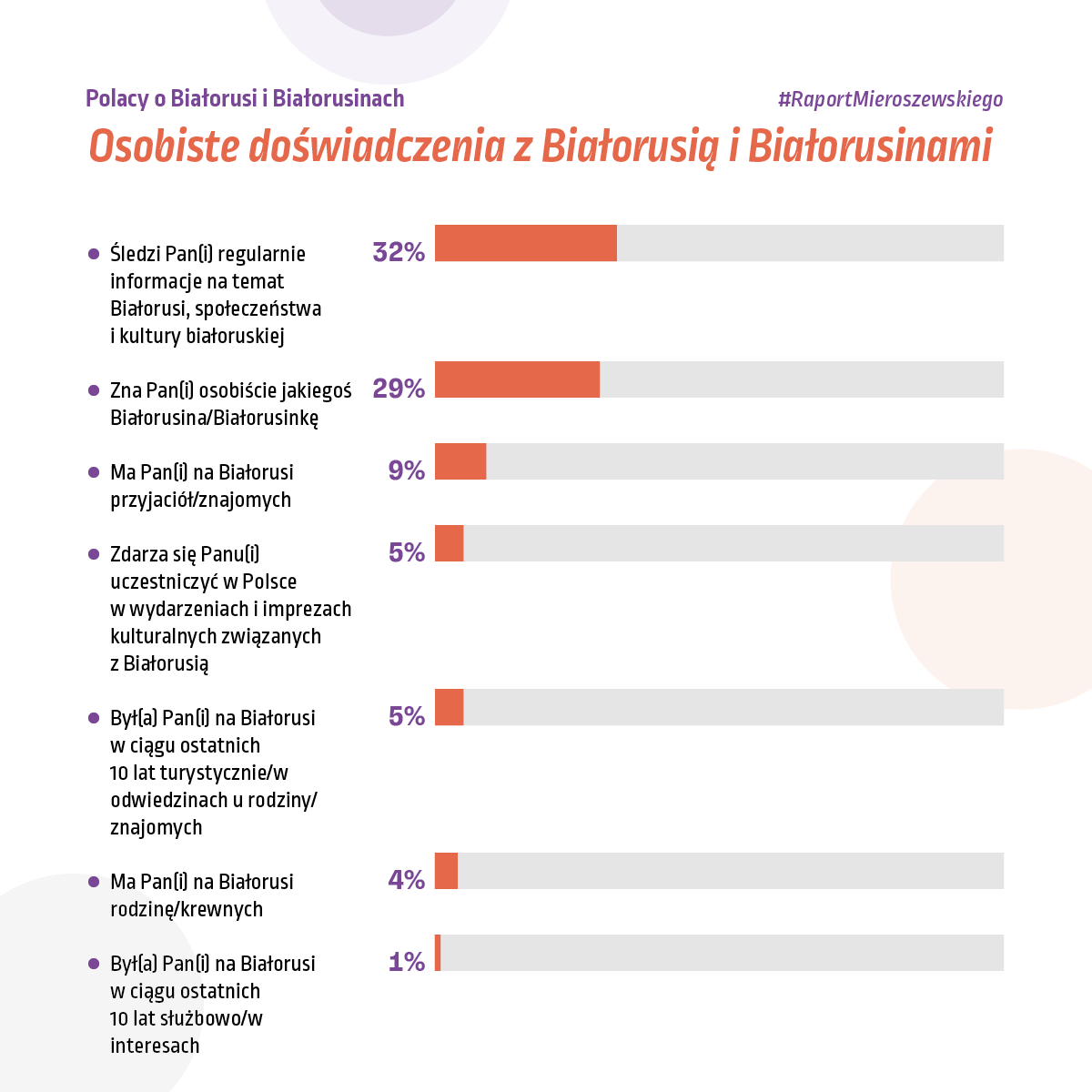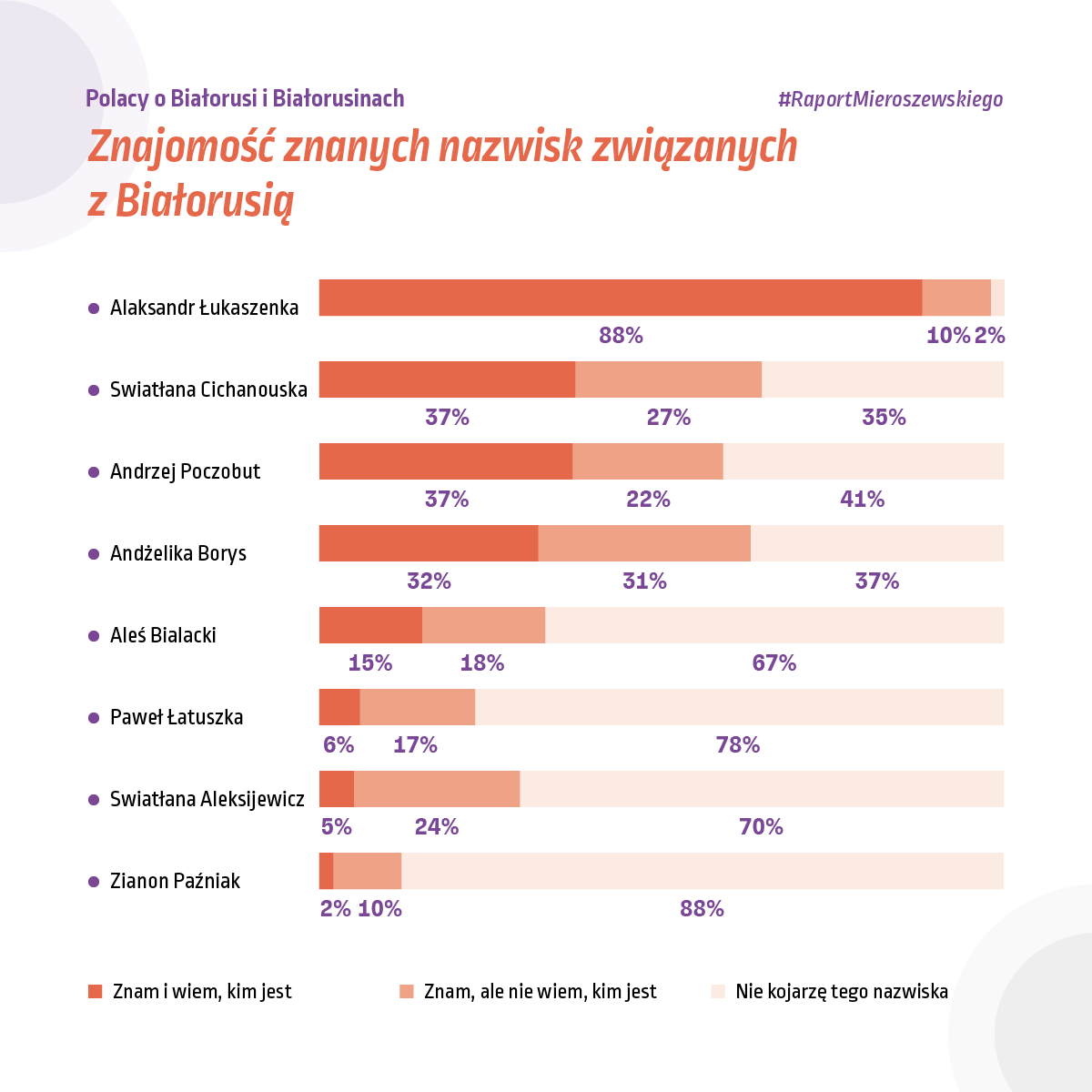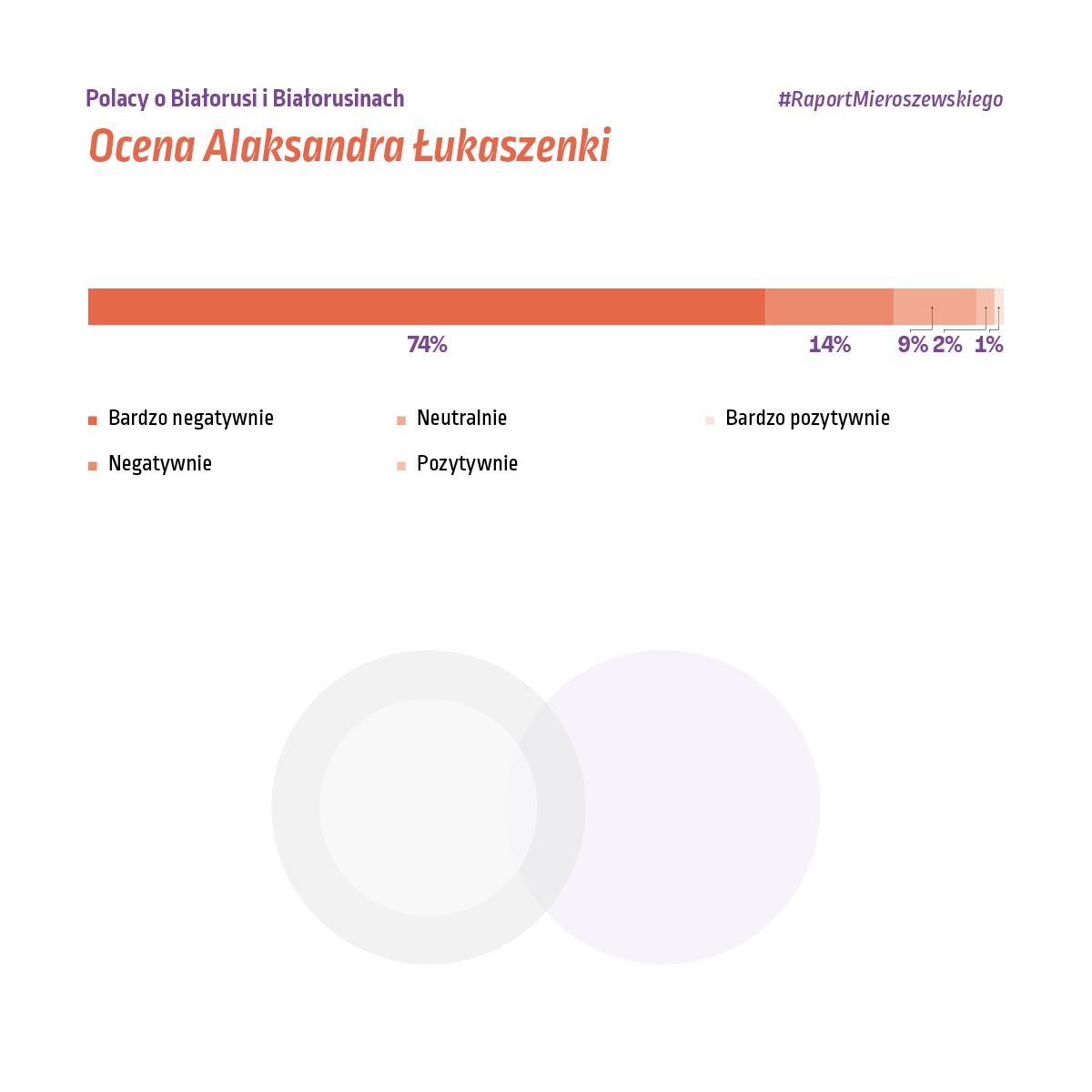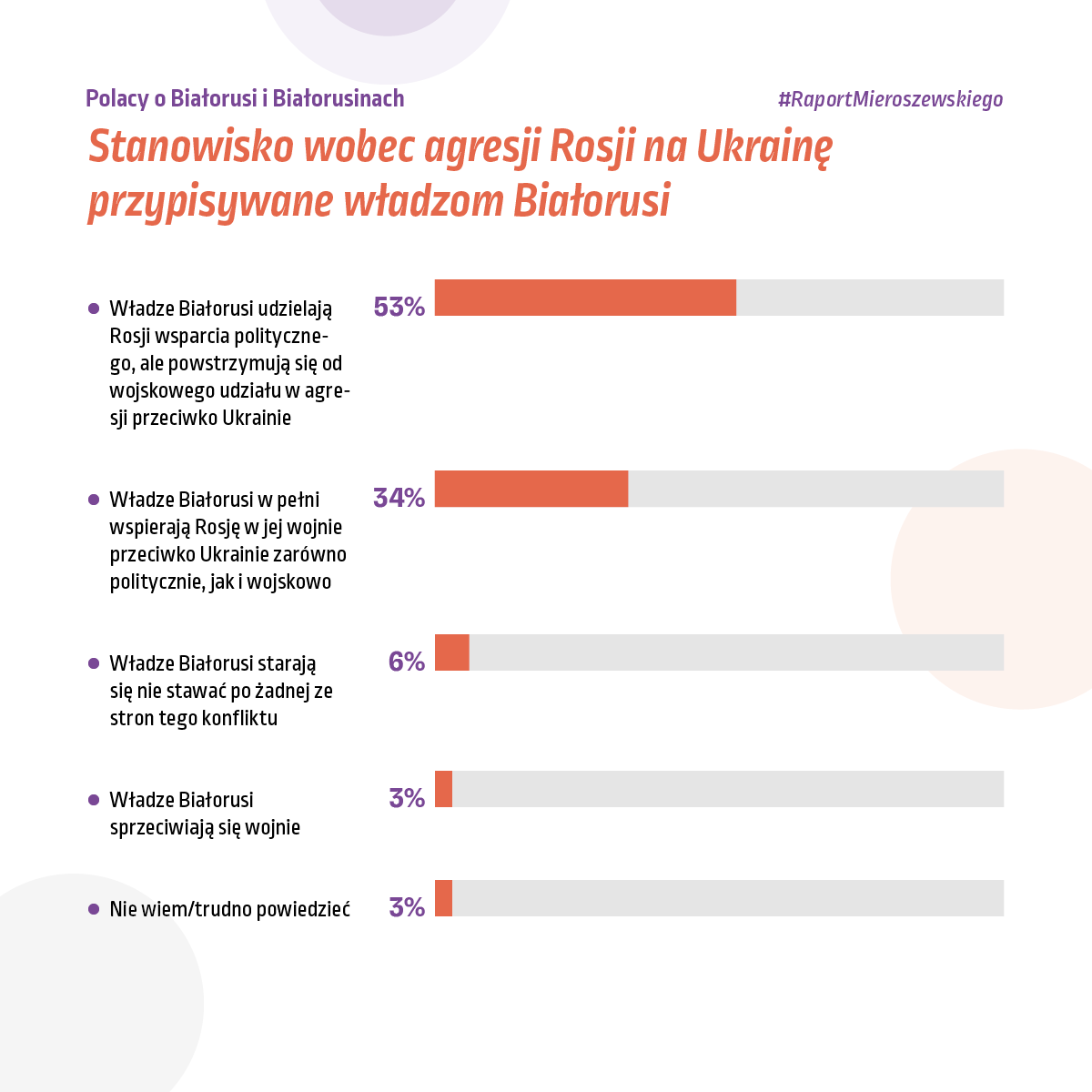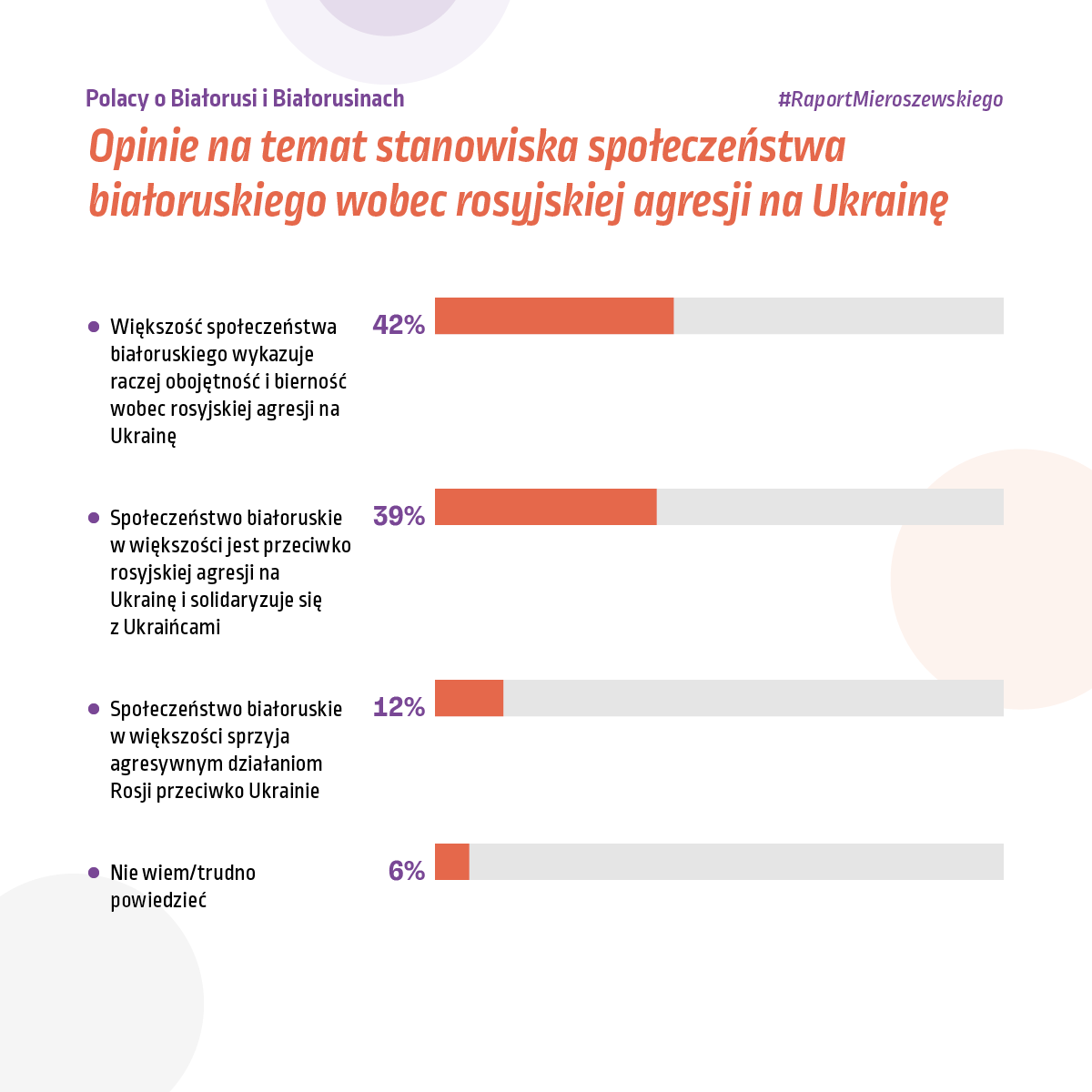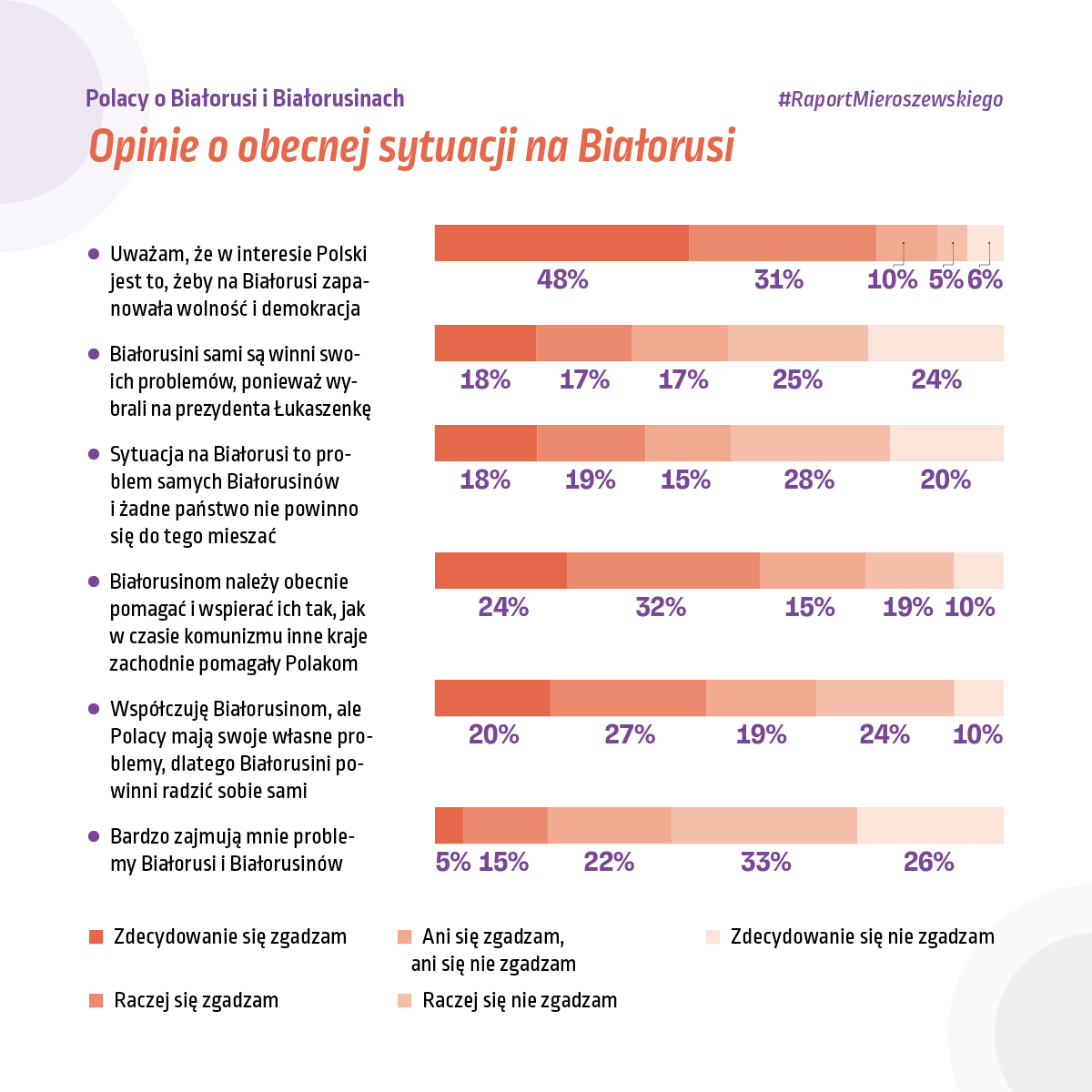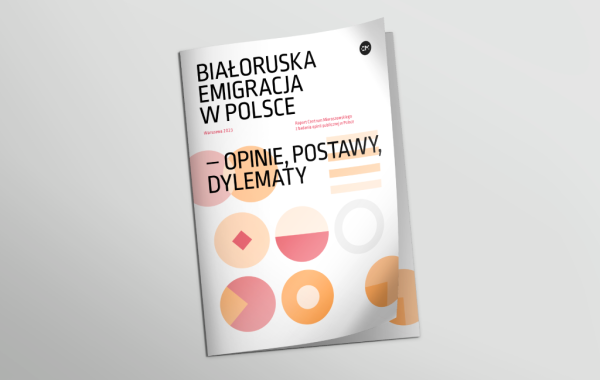Poles on Belarus and Belarusians
What do Poles think about Belarus and Belarusians? According to Poles, is Russia a "stone at the neck" of Belarusians? Does an attitude of solidarity with the Belarusians prevail in Poland? And do Poles know who Svetlana Tikhanouska and Andrei Pochobut are? The Mieroszewski Centre's report on public opinion polls in Poland is out.
- Poland has become one of the most important places of refuge for Belarusian activists, cultural people and entrepreneurs in 2020-2021. The resistance of Belarusian society against the Lukashenko dictatorship has generated a very positive response in Poland, breaking numerous stereotypes about Belarusians supposedly resigned to their fate and incapable of grassroots uprisings in the name of defending fundamental rights and freedoms. At the same time, the brutality of the Russian aggression, in which Belarus also took part, provoked a mass outcry which was, and is, directed primarily at the Russians, but did not spare Belarusians either. Observing the clash of these processes - growing sympathy and respect, as well as opposition and outrage - we thought it worthwhile to investigate in more detail how Poles currently view Belarus and Belarusians, how their attitudes are evolving, and what role the aforementioned political events play in this process," says Dr Ernest Wyciszkiewicz, director of the Mieroszewski Centre.
Perceived attitudes towards Poland
- In 2020, Russia was the only country thought to have a predominantly unfriendly attitude towards Poland. This year, Belarus has also followed in its footsteps. This is the essential and most important finding of the present survey.
- With regard to Belarus as a country, Poles tend to be fairly unanimous in thinking that it is unfriendly towards Poland. However, respondents’ views are more ambiguous when it comes to Belarusians as a nation. While the percentage of those who agree with the claim that the Belarusian people are friendly towards Poland is currently not as high as back in 2020, this belief is shared by a third of the respondents. Approximately one in two respondents believes otherwise, namely that Belarusians are unfriendly towards Poland.
The image of Belarus
- When asked about their connotations around the word ‘Belarus’, the vast majority of the Polish respondents provided responses with a negative overtone.
- The opinions on Belarus and the image of that country among Poles may depend on information sources. It turns out that quite many Poles (29%) personally know a Belarusian man or woman, and an additional 9% have friends or acquaintances in Belarus. Therefore, some respondents can obtain first-hand information about this country.
- Poles associate the 2020 events in Belarus primarily with the rigged presidential elections and mass social protests that were brutally suppressed by the authorities. What Poles remembered most vividly was the large scale of social resistance by the Belarusian society, expressed through demonstrations and protests. This image was further reinforced by reports of the repression suffered by people participating in those protests.
- Of course, it is not surprising that Alexander Lukashenko, holding dictatorial power in Belarus, clearly tops the awareness ranking, while also being perceived highly negatively by the overwhelming majority of Polish respondents. It is noteworthy that almost 40% of the surveyed Poles know who Sviatlana Tsikhanouskaya, Andrzej Poczobut or Andżelika Borys are.
Assessment of the Belarusian authorities and their policies
- Nearly all Poles are very critical of Alexander Lukashenko. Nearly one in two respondents justifies their negative views by referring to Lukashenko’s disrespect for the principle of freedom, his use of terror and persecution of his own people.
- According to the majority of the respondents (87%), the Belarusian authorities are providing support to Russia in the war against Ukraine. In the respondents’ view, the Belarusian society is largely indifferent and passive in the face of the ongoing Russian aggression in Ukraine (42%), while 12% of the respondents think that the Belarusian society favours Russia.
Polish-Belarusian relations
- Overall, 79% of the respondents agree that it is in Poland’s interest for freedom and democracy to prevail in Belarus.
- Following the rigged presidential elections and mass protests in 2020, thousands of Belarusians had to leave their country for fear of persecution. The respondents’ opinions on Poland’s policy towards Belarusians residing in Poland are divided. According to 43% of the respondents, Poland should provide support only to those Belarusians who have fled to Poland fearing political persecution. In contrast, 30% of the respondents believe that Poland should offer equal support to all Belarusians staying in our country, e.g. by offering them access to the labour market.
- Based on official data, almost 300,000 people living in Belarus identify as Poles. According to the majority of the poll respondents (79%), these people are our compatriots, in the same way as Poles from Poland.
One can say that Belarus is following in Russia’s footsteps also terms of the discrepancy in the perception of the country (and its authorities) versus the people. Before 2014, i.e. the annexation of Crimea, the same was true of Russia and Russians: Poles distinguished the political system from ordinary people and perceived them separately. However, the year 2014 brought a breakthrough: the perceptions of the country and of the people shifted closer together, gravitating strongly towards the negative side of the equation.
At the same time, we surveyed Belarusians residing in Poland to understand their attitudes towards Poland and Poles. The results will be presented soon in the next report.
The survey 'Poles about Belarus and Belarusians' is a continuation of a new series of reports launched in 2022 to better understand the evolution of mutual perceptions between Poles and Eastern European nations.
